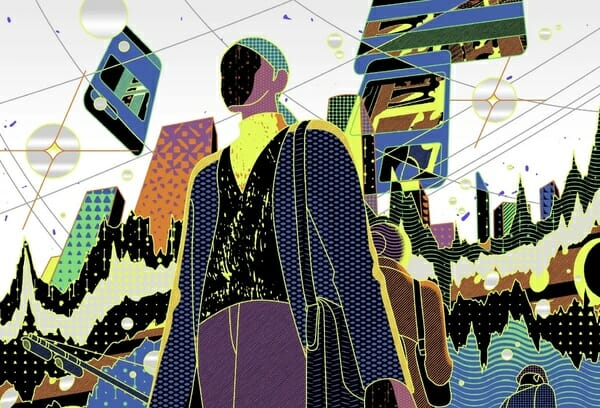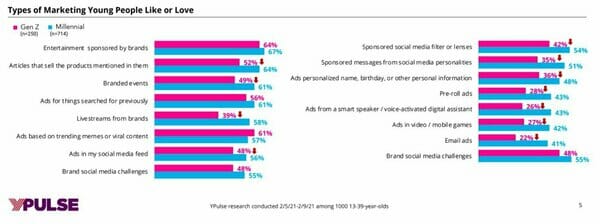
On the 15th of October our book “Real Fake – Playing with Reality in the Age of AI, Deepfakes and the Metaverse” has been released. It is our take on synthetic media, deepfakes, fake news, conspiracy theories, memes, internet culture, Generation Z and Alpha, crypto, narrative economics, virtual humans, CGI influencers, vTubers, NFTs, DAOs, VR, Web3, the Creator Economy and the Metaverse. Real Fake is about how humans continuously manipulate reality and how new digital technology tools enable us to go one step further in this ancient game.
The All-Conquering Quaver

“TikTok’s rivals are nervous. Governments are suspicious. A billion users are glued to their screens.”
Can we trust TikTok with our data? Can we trust the Chinese government that they won’t use TikTok to manipulate us with all kinds of misinformation, disinformation and propaganda?
Our Virtual Lives Are Real Lives

“How should we understand reality in a digital age? The popular acronym “IRL,” short for “in real life,” contrasts real life with digital life. […] In the future, we’ll be spending even more time in online environments. We’ll be working and playing in digital worlds. We’ll interact with friends and family and build new communities in virtual worlds. It matters whether we can have authentic and meaningful experiences there. I think we can. Because of this, it no longer makes sense to use “IRL” and “the real world” when talking about physical reality. Instead, we can talk about the physical world and contrast it with digital and virtual worlds. All these worlds can be real.”
The New York Times has a whole series about the question: “What Is Reality?”
Exploring The Metaverse
The metaverse will cause three paradigm shifts:
“1. Experience: People don’t just want to consume. It’s far more engaging to have gamified, contextual experiences.
2. Identity: People value their digital persona and want to carry it with them across the metaverse and even into the real world.
3. Ownership: Wherever people choose to spend their time, they want skin in the game.”
Decentralized Autonomous Organizations: Beyond the Hype
“Decentralized Autonomous Organizations (DAOs) are a new kind of organizational structure that run as code on blockchains. They’re owned and run by members who normally hold tokens that provide decision-making rights and/or economic rights in the organization. The number of participants in DAOs grew in 2021 from 13,000 to 1.7 million people around the world and DAOs are increasingly a hot button issue. With questions concerning accountability, how the emerging web3 space should be governed, and how DAOs can be used as a vehicle for entrepreneurship in the digital space, it is worth considering their growing importance.”
Also read the report on DAOs from the WEF.
Token-Gated Websites Are Web3’s Virtual Velvet Rope

“An increasingly popular Web3 tool, “token-gating” limits access to certain spaces to blockchain token-holders, allowing brands to offer perks to select customers. It’s also a way to appeal to the Web3 community. Gucci and Adidas are already on board.”
A New Era Begins: The Start Of The Avatar Economy

“We believe this will be the start of a new wave in the creator economy, connecting collectors and creators around the world, spawning and uncovering new talents, content, value, IP’s and brands, powered by Clones and RTFKT. The start of an Avatar Economy.”
According to RTFKT, identity is the core pillar of self-expression in the Metaverse. That’s why they are giving Clones X Owners Full Commercial Rights.
From the Big Short to the Big Scam
“You can ask the same question about crypto in general. I’ve been in a number of meetings in which skeptics ask, as politely as they can, what cryptocurrencies do that can’t be done more easily with more conventional means of payment. They also ask why, if crypto is the future, Bitcoin — which was introduced in 2009(!) — has yet to find any significant real-world uses. In my experience, the answers are always word salad devoid of concrete examples.”
I had to think about Paul Krugman’s opinion article for the New York Times, when I saw the two recent interviews with crypto addicts
Why Brands Are Obsessed With Building Community
“Historically, the relationship between consumers and companies was more transactional and direct. You would seek out an item you needed in a store. You might be put on a mailing list and sent promotional catalogs or coupons every few months, but communication remained relatively sparse. Today, the age of passive consumerism seems to be over. The expectation is to keep patrons active, enthusiastic, and engaged beyond the parameters of the product that they’re offering. Brands want consumers to be fans and follow them on social media, tag them in posts, contribute to private chat channels, and attend in-person events.”
Gen Z Likes Ads Based On Trending Memes

MUST WATCH: Inside the Metaverse Are You Safe?
“Is the next frontier in cyberspace a thrilling alternative world or the new Wild West? Yinka Bokinni goes undercover in virtual reality and is shocked by what she finds.”
Read the accompanying article here.
Contact
Real Fake is a weekly newsletter in which SogetiLabs’s Research Institute VINT examines the future where synthetic reality becomes part or our objective reality. We investigate the impact of new technology on people, organisations and our society. If you have any questions or comments, do not hesitate to contact us. You can reach us at vint@sogeti.com.

 English | EN
English | EN 